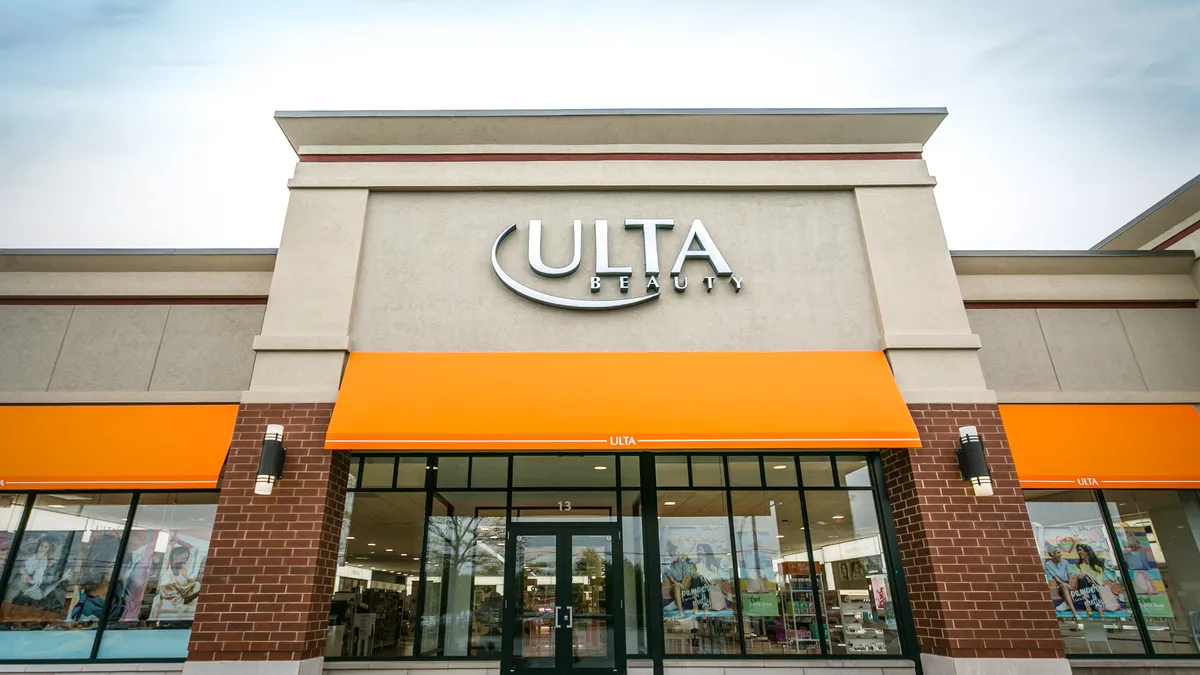Dive Brief:
-
After eight years leading the specialty beauty player through a period of growth, Ulta Beauty CEO Mary Dillon is stepping down, the retailer announced with its fourth quarter and full-year results Thursday. President Dave Kimbell will take over the role in June, as Dillon transitions to executive chair of the board of directors, where she plans to stay for a year.
-
Dillon said on a call with analysts that the transition was the result of "thorough and thoughtful succession planning" and would not directly answer whether she plans to stay in the retail business as an executive elsewhere, saying instead that her focus remains on Ulta Beauty. "I'm excited for the next chapter, but I don't really have any plans yet," she said.
-
At the same time, the retailer announced that current Chief Store Operations Officer Kecia Steelman will become chief operating officer. She will oversee store and services operations, supply chain and initiatives like Ulta's partnership with Target.
Dive Insight:
Dillon's surprise exit from Ulta Beauty comes as the retailer finishes out a volatile year shaped by the pandemic.
"We're emerging from the 2020 pandemic with a strong foundation and good operational momentum," Dillon said, noting that the time is right for a transition.
Although Dillon is praised for leading Ulta through a period of high growth, tripling market capitalization to over $18 billion, doubling the retailer's store fleet and delivering shareholder returns of 245%, she will be succeeded by an Ulta veteran who has been at the company almost as long as Dillon's been CEO. Kimbell was hired as the retailer's chief marketing officer in 2014, before taking over as chief merchandising and marketing officer in 2015, and then president in 2019.
"I believe there is no one more prepared or better-suited to lead Ulta Beauty into the future," Dillon said of Kimbell's appointment.
Kimbell's experience spans several key areas for Ulta, including corporate strategy, merchandising, marketing, brand development and loyalty, among other areas, and was reflected in the retailer's plans for the next year.
The retailer's loyalty program, usually a highlight, lost 10% of its members in the past year, executives said, mostly thanks to stores being closed. Executives said that those who left were mostly less engaged in-store shoppers, and that Ulta still had high retention rates for its best members.
Ulta's 2020 performance
| Metric | 2020 | YoY |
|---|---|---|
| Net sales | $6.2 billion | -17% |
| Net income | $176 million | -75% |
| Operating income | $237 million | -74% |
| Comparable sales | -17.9% | - |
Source: Ulta press release
Nevertheless, deepening loyalty and engagement is one of six strategic focus areas the retailer outlined for the year ahead, in addition to: building out omnichannel capabilities, elevating the end-to-end Ulta experience, expanding market share, optimizing costs and developing talent and culture.
Kimbell discussed several initiatives intended to further those goals, including building out a more personalized experience, reintroducing testers and sampling programs, investing in its apps, changing store layouts to highlight key categories, training associates in priority areas like skincare, expanding assortment in growing markets, scaling its conscious beauty initiative and introducing wellness shops.
The plans also include opening up to 40 net new stores in 2021, after the retailer had to significantly scale back its openings the year prior.
"We are positioned to thrive going forward," Kimbell said. He also thanked Dillon for her work building Ulta to where it is today, and as a mentor to him.
"Under your leadership, Ulta Beauty has grown to become a beloved beauty destination. … I am grateful to have worked alongside you for many years," Kimbell said.















